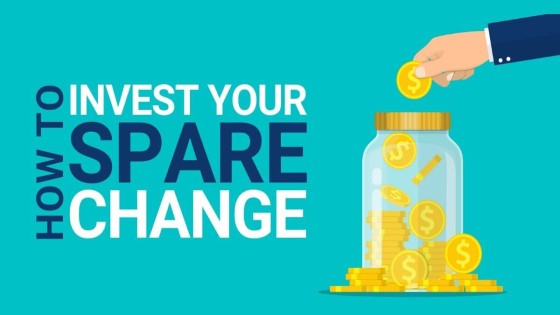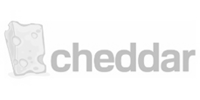Borrowing from your 401k anytime soon? Before you decide to take a 401k loan, read on to make sure you are making the best financial decision based on your situation.
How is your 401k actually doing? Grab a FREE 401k check-up instantly with Blooom to see if your fees are too high. To learn exactly what Blooom is and how it works, we break it down for you here.
Now with that said, did you know that 20% of all 401k participants have outstanding 401k loans? This surprising stat is according to the Employee Benefits Research Institute and held true since the early 2000’s.
There seems to be a lot of confusion about borrowing from your 401k. Some will say they are the worst idea since investing 100% in crypto, while others have used them to gain more than they could with a 401k. Ultimately, there is a lot of fear when it comes to accessing your retirement fund.
But the right information can ease fear. There are some instances where using a 401k loan is a horrible idea, while other times it’s an amazing idea. It all depends on why you need the money and how it can fit with helping you achieve your long-term financial goals.
Let’s get real, sometimes we get in a money crunch and need to access cash quickly. Instead of using a sketchy payday loan with high-interest rates, borrowing from your 401k loan could be a great option.
Here’s everything you need to know about 401k loans.
Contents For This Post (Click to Open)
Real Quick – What Is a 401k Again?
A 401k is an employer-sponsored retirement plan. It is the most frequently used option to fund your retirement. A 401k is only offered through an employer and is invested using pre-tax money. While you aren’t taxed while contributing, you will be taxed in the future.
Once you enroll in the plan, you will select a percentage of your paycheck to be directly deposited. One of the biggest perks of a 401k is that your employer may match a portion of your contributions. Employer contribution can come in the form of a percentage or annual amount.
For example, my past employer matched $1,000 each calendar year. While other employers can match a percentage of your total contributions. This is one of the biggest perks of using a 401k and a great way to increase your retirement savings.
Finally, as a 401k is meant for retirement, withdrawals are hit with a 10% early distribution charge and subjected to taxes as the contributions are pre-tax income.
Basics of 401k Contributions
- There are no income limits like a Roth IRA. Regardless of how much you earn, you can contribute to a 401k.
- If you’re under age 50, you can contribute up to $19,000 annually.
- If you’re over 50, you can contribute up to $25,000 annually (this is known as a catch-up contribution).
Now that you understand the basics of a 401k, here’s how you can use your savings to loan money to yourself.
What is a 401k loan?
Borrowing from your 401k means you are essentially taking a loan from your future self. Technically, it’s not a loan as there is no lender, and accessing the money doesn’t involve your credit score in any way.
Instead of paying interest to a bank, credit union, or credit card, you’re paying interest back to yourself. As you withdraw money from your 401k, you are no longer investing that into the stock market, so your gain is actually interest from paying yourself back.
This can get confusing for some. You might be thinking, “How do I pay interest back to myself?”
Any interest charged on the outstanding loan balance is repaid by yourself into your own 401k account. In essence, you are transferring money to yourself. This makes the cost of a 401k loan minimal, and sometimes even positive depending on the stock market. In general, a 401k loan is cheaper than paying interest to a bank or credit union.
How does a 401k loan work?
With a 401k loan, the total amount you can borrow is based on your total account value. If you have a balance of $100,000 you can borrow up to $50,000, or 50%, of your total account value. Whichever is less is the amount you can borrow.
To get started, you would let your 401k provider know that you intend to take a loan out and which investments you want to borrow the money from. They will liquidate those investments and you will lose any potential gains you might have in the future.
You then have up to five years to pay back your loan. If you want to pay off early there is no early repayment penalty.
Why Do People Use 401k Loans?
Research by the Pension Research Council on 401k loans and defaults have shown that people use 401k loans for several main reasons:
- 40% are used to repay debts (i.e. student loan and credit cards)
- 30% are used home repairs or improvements
- 30% are used for spending (aka wasting) instead of investing or paying off loans. Don’t fall into this percentage!
5 Good Reasons Borrowing From 401k
While it can feel like a gamble, there are some good reasons for borrowing from your 401k. Here are some of the most common reasons.
1. Purchase a home or rental property
If you can use the money for a bigger down payment that reduces your interest rate or helps you avoid PMI, this is a good reason. Plus, it having extra to put down on a property also helps if your credit score is low. A low credit score doesn’t allow you to receive a great interest rate, but you may be able to get a lower rate with a larger down payment.
2. Need money fast
Most of the time a 401k loan is an easy way to get short-term cash quickly as you don’t have to submit a formal application or go through a credit check. Plus, it doesn’t generate a hard inquiry against your credit score! All it takes is a few steps within your online portal to get started.
Within a few days you can have the money in your hands. Some providers will send a check, while others will prepaid debit cards. Make sure you check in advance to see which you will receive.
But, it’s also important to note that a 401k loan is not the only way to get money quickly. Some of these side hustles pay out quickly and can help you avoid taking out a loan.
3. Educational expenses
Education is an investment in yourself and your future. If you can avoid high cost student loan debt with a 401k loan, this could be another great option. The more you learn, the more you earn!
4. Refinancing credit card debt
Credit card debt sucks. It’s high-cost and once you get in deep, it’s hard to feel like you can ever pay more than the minimum amount due. If you use the loan to pay off credit cards, you can usually pay back your 401k loan at a much lower interest rate.
5. Flexible repayment schedule
Although regulations specify a five-year repayment schedule, most 401k loans allow you to repay the plan loan faster and don’t have a prepayment penalty. Most plans allow loan repayments to be made conveniently through payroll deductions.
Note: These are after-tax dollars!
5 Good Reasons for NOT Borrowing From 401k
Taking money out of your retirement account should be for major emergencies, not for everyday expenses. If you are borrowing money to pay for things like the rent or mortgage, you need to get your budget in line.
Don’t think of your 401k as an emergency fund. Think of it as an absolute last resort before touching your retirement savings. Don’t use a 401k loan to pay for things like a bucket list trip or remodeling your living room.
Here’s why borrowing is a bad idea:
1. You’re Turning Off Compound Interest
Compound interest only works when you don’t touch the money. This is why so many people lose money when they try and time the market. It never works, even for the most successful traders in the world.
By taking a loan against your 401k you’re turning off the compound interest machine. Less compound interest equals less money in your future!
2. Your Risk (and Sanity) Can Drastically Increase
If you have a 401k loan and you decide to quit or you lose your job, the balance is due in full in 60 days or less. And if you don’t pay in full by 60 days, expect to hear from the IRS.
3. You Get Lower Paychecks
Most employers will start automatic paycheck deductions to begin the loan repayment immediately after you receive the funds. This means your paychecks are going to be smaller for the foreseeable future.
4. You Don’t Move the Needle
Instead of owing the credit card companies or car loan, you are now paying yourself back. Yes, you are absolutely paying a lower interest rate if you borrow against your 401k, but don’t forget you’re turning off the compound interest machine.
Your lower interest rate comes with negative consequences:
- Increased risk with your employer (and the IRS)
- Losing the power of compound interest
- Double taxation
- Paying more for stocks you already own
5. Your Future Self Won’t Appreciate It
While 70% of people take a 401k loan for the right reasons, 30% do it for the wrong reasons. If you’re in the 30%, your future self won’t appreciate your reckless spending in the future.
Remember, your 401k is your retirement savings. Train yourself to not even think of this an option!
Alternatives to a 401k Loan
Again, think of this loan as an absolute last resort. Instead, check out some of these alternatives to a 401k loan so you don’t have to access your future retirement funds.
Trust me, your future self will thank you for letting compound interest do its job!
Roth IRA
Roth IRA’s are great because they are much more flexible than a 401k. With a Roth IRA you can withdraw your contributions without penalty. Yes, 100% free! This is because your contributions have already been taxed.
If you withdraw your Roth IRA earnings then you will have to pay early distribution fees. Again, this is still an individual “retirement” account. Don’t think of it as a normal savings account.
Balance Transfer Offer
Before taking out a 401k loan or withdrawing from your Roth IRA, have you checked your current credit cards balance transfer offers? Often times, cards will offer introductory and ongoing low balance transfer rates. They can be as low as 0% or up to 5% and get you cash nearly overnight.
Once you take a balance transfer, you have a set number of months to pay it off. If the balance is paid off before the end date you can pay little, if any, money in interest. I’ve done this several times and loved the freedom of having 12-18 months to pay off certain big-ticket items.
The only fees you pay are to activate the balance transfer offer, which aren’t much. These fees range from 2-5% of the total transfer amount. Personally, I’ve used this when a $5,000 air conditioner went out and when I needed new furniture. I paid the balance off before the due date and only paid the one-time setup fee.
HELOC or Home Equity Line
Depending on the reason for your 401k loan, a HELOC or home equity loan is another great option. Make sure to read more about these two options.
Personal Loans
Another way to avoid 401k loans is taking out a personal loan. Depending on your credit score and income, you can score some great deals on personal loans too.
The 3 Biggest Myths of Borrowing From 401k
When you hear some financial “gurus” talking about 401k loans there is a lot of negative words that come with it, but they aren’t all necessarily true. Here are some of the biggest myths of a 401k loan:
1. The Stock Market Always Goes Up
While historically the stock market has yielded a positive return averaged out over the past century, the cost of bank and consumer loan interest is real. If you are ignoring the potential to take a short-term loan from your 401k while you max out your credit cards, remember the stock market isn’t guaranteed returns.
2. Tax Inefficiency
A lot of talking financial heads say that 401k loans are tax-inefficient because they must be repaid with after-tax dollars. Thus, acting as double taxation. But in reality, only the interest portion of the repayment is treated as double taxation which is usually a small amount.
3. Leaving Work With an Unpaid Loan
Taking any type of loan and getting fired isn’t an ideal situation. It can be even more stressful and difficult if it’s a loan you must back pay or get a letter from the IRS.
But, let’s say you take a plan loan and get fired. You will have to repay the loan in full or the balance will be considered a taxable distribution. This will result in a 10% federal tax penalty on the unpaid balance if you are under age 59½ years old.
While this is all true, here’s how it actually could play out:
At retirement or time of firing, a lot of people choose to take part of their 401k money as a taxable distribution, especially if they need cash quickly. Having an unpaid loan balance has nearly the same tax consequences of making this choice.
Most plans don’t actually require plan distributions at retirement or separation from service. You are usually given a grace period of 60 (or sometimes even 90 days) to arrange plan-loan repayment after moving on from your employer.
And if they want to avoid negative tax consequences, these individuals can use other sources to repay their 401k loans before taking a distribution. If they do this, the full plan balance can qualify for a tax-advantaged transfer or rollover.
If an unpaid loan balance is included in the participant’s taxable income and the loan is subsequently repaid, the 10% penalty does not apply.
Yes, slightly complicated, but don’t believe everything you hear with these loans. Make sure to do your own research!
Here are a few other common questions regarding these type of loans.
FAQs About Borrowing From 401k
Does every company allow 401k loans?
No, not every employer retirement plan will allow 401k loans. Make sure you contact them or check the guidelines to see if they allow them.
What is the maximum amount I can loan from a 401k?
The maximum amount you can borrow is $50,000 or 50% of your vested account balance. Whichever is less is what you can use for a loan. Remember, your vested account balance is the amount that belongs to you.
Here’s an example:
Sometimes you have to stay with your employer for a certain number of months before the employer contributions actually belong to you. The employer may also require a minimum loan amount of $1,000 but depends on your employer’s rules.
How long do I have to repay 401k loan?
Typically you will have five years to repay a 401k loan.
How are 401k loans repaid?
Like contributing to a 401k, your loan repayments are set up with automatic deductions from each of your paychecks. Terms can range in time frame, but the longest amount to repay your loan is sixty months (five years).
Some employers will do repayment plans each paycheck while others are structured as monthly payments. It’s important to note that although they are automatic deductions, the amount is after-tax dollars.
This is unlike the pre-tax ones that you normally fund a 401k with. Each statement will show your balance, credits to the loan, and remaining principal balance like a normal loan statement.
Can I contribute to my 401k with a 401k loan as well?
Some 401k plans do not allow you to contribute to the plan while you are making loan repayments. This depends on the details of your 401k provider, so make sure to double check if you can contribute. Otherwise, you might want to do some more research on a traditional or Roth IRA.
What happens if I lose my job with a 401k loan?
This is a tough scenario for sure. If you lose your job while you have an outstanding 401k loan, make sure you contact the 401k plan quickly. You may need to repay the balance fast as it could be categorized as an early distribution. This would add a 10% fee to your loan if classified as an early distribution.
Usually, you have 60 days to repay your loans, so make sure to not quit your job on a whim unless you are prepared to pay it off quickly. Note that about ten percent of all 401k loans go into default due to a job change, and not having enough money to pay off the loan.
What happens if I don’t pay back the balance in 60 days?
Don’t worry, you’re not going to jail. The IRS will classify your remaining balance (the amount you didn’t fully pay) as an early withdrawal. They will charge you a 10% penalty on that amount, and make you pay taxes as it’s considered an early distribution.
While it’s not the end of the world, it’s not the best situation to be in after losing your main source of income.
How do taxes work with a 401k loan?
At the time you take a 401k loan you do not pay taxes on the full amount received. However, if you don’t repay the loan on time, taxes and penalties can be enforced.
Can I take a 401k loan from an old employer’s 401k plan?
If you don’t work for the company where your 401k plan currently is, you can’t take a 401k loan. But if you switch employers you might have the option.
You may transfer a balance at a former employer to a new 401k plan. If your current employer plan does allow for 401k loans you can borrow with your new account.
What If I transferred my 401k to an IRA. Can I still get a 401k loan?
This happens a lot when people leave jobs and go to an employer without a 401k. But if you transferred your old 401k to an IRA, you can’t borrow from traditional IRA.
The Takeaway
There are some instances where it can be beneficial while others are a huge financial mistake. Plus, taking out a loan to repay debt can be dangerous, as your 401k assets are protected from creditors.
Ultimately, don’t make this type of decision on a whim. Do a lot of research and look at other options before you begin to start withdrawing money from your 401k. Check out one of the other options above to see if you can find a better solution.











2 Comments
I’m glad I don’t have a 401k because it motivates me to work that much more toward achieving excellence in entrepreneurship.
That’s an interesting way to look at things, but I guess I’m glad that it’s motivating you to save for your own retirement.